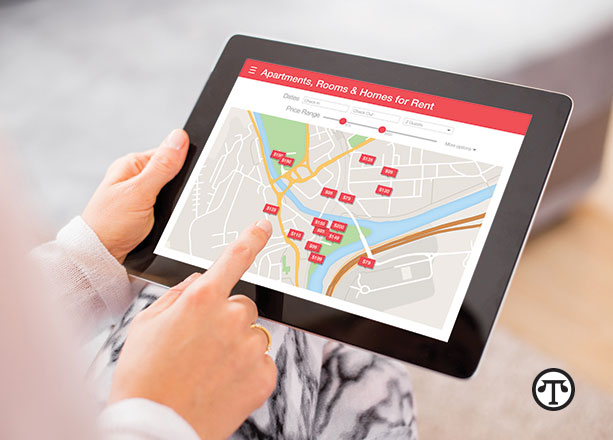
(NAPSI)—Technology has revolutionized the homebuying process in some surprising ways.
What Tech Can Do Today
According to Google Trends, the number of searches for homes for sale has doubled in the past 10 years. Online tools streamline the research process and give buyers the power to explore home price trends, quality of schools and even neighborhood aesthetics. These searches offer virtual tours, house-to-house comparisons and direct contact with local real estate agents.
The National Association of Realtors reports that while 92 percent of homebuyers still choose to work with an agent, this is no longer the first step in the process. Instead, 95 percent of buyers search the Web first, then find a qualified agent.
The power of technology in the homebuying arena extends well past online listings, however. For instance, Quicken Loans, the nation’s second-largest retail mortgage lender, takes real estate technology a step further with Rocket Mortgage—the industry’s first fully online, digital mortgage.
According to the lender, Rocket Mortgage gives consumers unprecedented control of the mortgage process. It empowers them to apply and get approval of their loan in minutes—whether they’re on a computer, a tablet or a phone. From there, the system shares rates and terms each individual qualifies for based on income, credit rating and other factors.
Prospective buyers can now literally walk through a home, then apply and receive a full approval right from the living room in just minutes.
What Tech May Do Tomorrow
This ability to make the homebuying process mobile at nearly every phase cements the effect of both real estate industry innovators and tech geniuses. Coming soon is the assimilation of virtual reality (VR) into this increasingly tech-driven process.
Already a popular tool in many communities, VR gives agents the power to show homes from all over the globe. Its use extends well beyond homebuying, letting homeowners virtually preview and plan home renovations.
The Motley Fool expects VR devices to be in the hands of more than 171 million people by 2018. As VR becomes more commonplace, its influence in many industries, especially real estate, is expected to grow.
Whether you’re seriously considering purchasing a house or just keeping track of home values, most of these technologies are free and easily accessible.
Learn More
For further facts or to try some of this technology for yourself, go to www.quickenloans.com.
